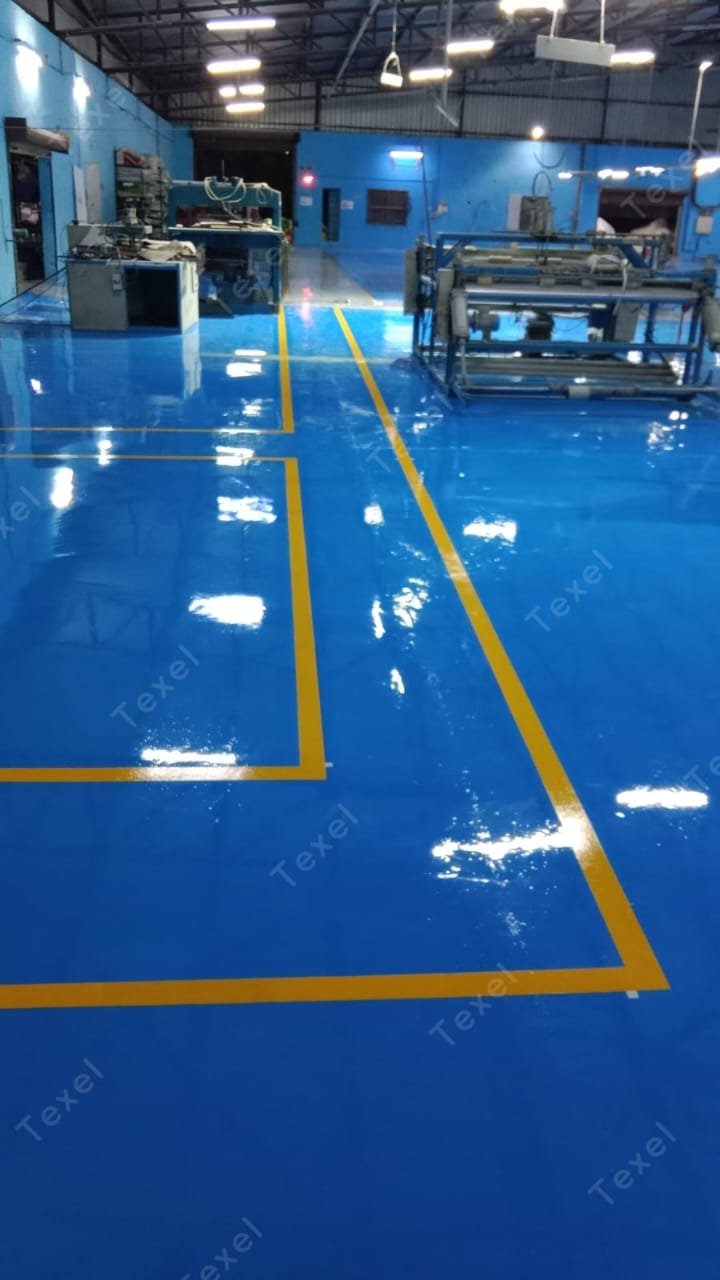EPOXY
FLOORING Vs FLOOR PAINT
INTRODUCTION
Epoxy flooring
is a type of durable and versatile flooring system commonly used in industrial,
commercial, and residential settings. Epoxy flooring is applied over concrete
floors to create a smooth, seamless, and resistant surface.
Floor paint is a type of
paint specifically formulated for use on floors. It is designed to provide a
durable, protective coating that enhances the appearance of the floor while
also offering resistance to wear, stains, and chemicals.
DIFFERENCE BETWEEN EPOXY
FLOORING AND FLOOR PAINT
|
|
EPOXY DLOORING |
FLOOR PAINT |
|
Composition |
Epoxy flooring is made of a two-part mixture
consisting of epoxy resin and a hardening agent (also known as a curing agent
or catalyst). When mixed together, these components chemically react to form
a rigid, durable plastic material. |
Floor paint can be made from various formulations,
including latex, acrylic, epoxy, or polyurethane. These paints typically
consist of pigments, binders, solvents, and additives. |
|
Durability |
Epoxy flooring is known for its exceptional
durability. Once cured, it forms a tough, seamless, and chemical-resistant
surface that can withstand heavy foot traffic, impacts, abrasion, and
exposure to chemicals and moisture. |
Floor paint generally offers less durability
compared to epoxy flooring. While some types of floor paint, such as epoxy or
polyurethane paint, provide moderate durability, they may not be as resistant
to wear, chemicals, and abrasion as epoxy flooring. |
|
Cost |
While the initial installation cost of epoxy
flooring may be higher than that of floor paint, its long-term durability and
low maintenance requirements can result in cost savings over time. |
Floor paint may offer a more budget-friendly option
upfront, but ongoing maintenance and recoating expenses should be considered. |
|
Performance |
Epoxy flooring offers superior performance in terms
of durability, chemical resistance, and aesthetics. It provides a seamless,
non-porous surface that is easy to clean and maintain, making it ideal for
industrial, commercial, and residential applications. |
Floor paint provides a protective coating for floors
but may require more frequent maintenance and recoating compared to epoxy
flooring. While some types of floor paint offer good resistance to stains,
wear, and chemicals, they may not withstand heavy-duty use as well as epoxy
flooring. |
|
Types
|
·
Self-Levelling
Epoxy Flooring ·
Mortar Epoxy
Flooring ·
Gravel Epoxy
Flooring ·
Epoxy Terrazzo
Flooring ·
Antistatic
Epoxy Flooring ·
UV-Cured Epoxy
Flooring ·
Decorative
Epoxy Flooring |
·
Latex and
Acrylic Floor Paints ·
Epoxy Floor
Paints ·
Polyurethane
Floor Paints |
CONCLUSION
The choice
between epoxy flooring and floor paint depends on the specific requirements of
the project, including the level of durability, performance expectations,
budget constraints, and aesthetic preferences. Epoxy flooring is often
preferred for demanding environments where durability and longevity are
paramount, while floor paint may suffice for less demanding applications where
cost and ease of application are primary considerations.
